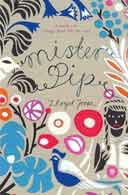
This blog has for one thing highlighted my eclectic tastes in books, for I am just as impressed by McCarthy’s cannibalistic on the road missive as I am by this sweet tale of Second World War covert book lovers.
A loan from Sam’s sister, it was a lovely book to read. Perfectly pleasant, likeable characters and a yesteryear charm (that in most cases I would usually find unbearably saccharine and twee) are deftly presented by author Shaffer. Her heroine Juliet is kick-arse in her own 1940s way, refusing marriage proposals and having a homo best friend, and has this sensible yet whimsical quality about her (Amber, you may very well hate her...I’m just saying she had her own charms). Adding to the book’s appeal is the back story of the author; a 70-something librarian known in her family for her exceptional storytelling, sits down and pours out this book, only getting too ill to quite finish it. In steps her niece Annie and puts the finishing touches on it. You would never guess that essentially two people have authored it as the voice and narrative are seamless. Book goes onto become a worldwide publishing smash, and while it’s a shame Shaffer didn’t live long enough to see it, kudos to her for writing it all. Better late than never I reckon.
Oh, and did I mention that the whole book is written in letters? Again, a somewhat dated way to write a novel, but it really did complement the era and made me yearn for all the letters I’ve sent over the years, and how rad it is to receive one in the post. The whole thing really is a bit of a love letter to books, with the main characters meeting via a book that used to belong to Juliet ending up in Guernsey and friendship born out of mutual love of Charles Lamb (how many people have I become friends with based on their bookshelf? Methinks quite a few, and a case in point: when Josh and Brock visited our house a year or so ago, he exclaimed “Nik-nik! We practically have all the same books!”) No surprises there kiddo.








